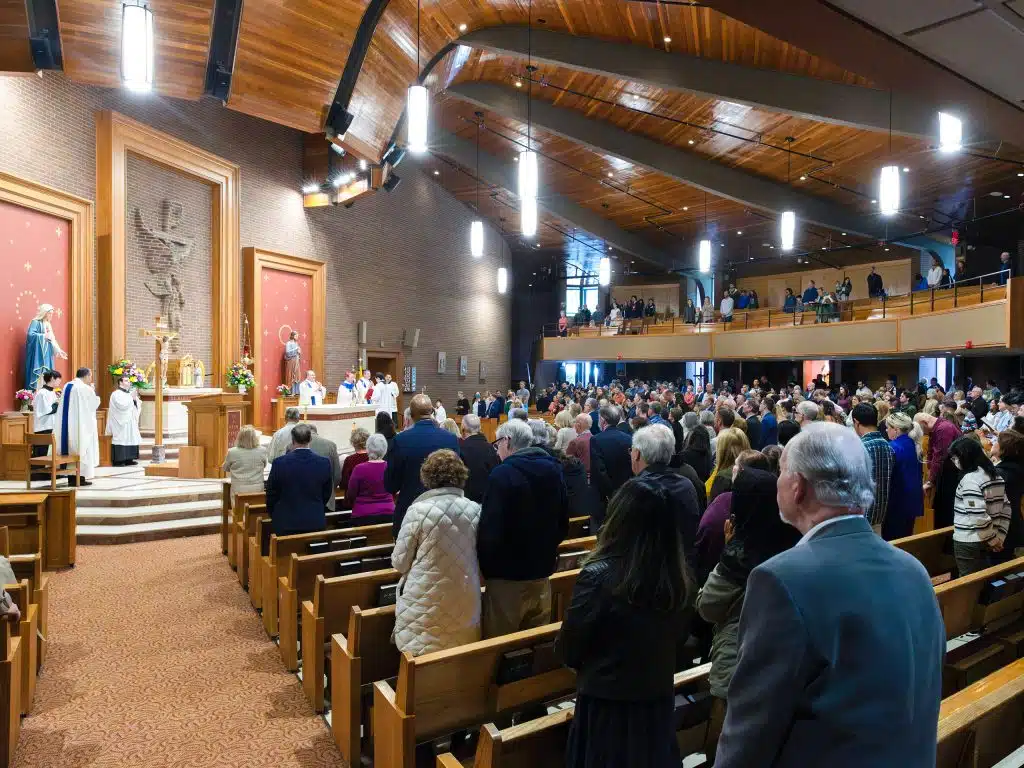The classic biblical passage that clearly offers a description of faith is: “Now faith is the substance of things hoped for, the evidence (or conviction) of things not seen” (Heb 11:1). However, the meaning of this passage is not immediately clear to all readers. Let us try to unpack things starting from the end of the sentence. What are the “things not seen?” These are all the realities or truths spoken of in divine revelation (contained in sacred Scripture or sacred tradition) that we do not witness ourselves in this life, but that we still accept or believe because of the trustworthy word of another. That “other” in the present context is not just anybody, but God himself.
Just as we can reasonably rely upon the words of a knowledgeable and honest person speaking about a matter within his competence, it is all the more reasonable to trust the words of God, who knows absolutely everything and who can neither deceive nor be deceived. Accordingly, God’s word provides us with the highest motivation for belief, since it is even more trustworthy than our own witnessing of events (about which we sometimes make mistakes). In this way, we can understand the description of faith as the “evidence of things not seen.” St. Thomas Aquinas notes (“Summa Theologiae,” II-II Q. 4, Art. 1) that evidence here can be understood to refer to the result of evidence, which is the conviction that something is true; hence, some translations of the passage from Hebrews have the word conviction instead of evidence. Because God’s word is always absolutely trustworthy, it can act like evidence, like the testimony of someone under oath, in providing us with a perfect conviction that whatever he says is true, especially concerning matters not seen by us.
What about the words “substance of things hoped for?” St. Thomas also points out that we often use the word substance to refer to the first beginning of something, as we might say that the whole system of geometry is contained substantially in the principles or axioms of geometry. All the conclusions of the many geometric proofs that we studied in school are found in substance, or in their first beginning, in the fundamental principles that serve as starting points for the geometric system. It is just a matter of drawing out the implications of those starting points when one proves a theorem.
In a similar way, St. Thomas explains that faith can be called the substance of things hoped for. So by accepting God’s word in this life, we accept and adhere to the realities that we hope to see as direct witnesses in the next life. The things of eternal life have their first beginning in us now when we accept the truth about them in God’s word. As paragraph 168 of the “Catechism of the Catholic Church” recalls: “In the Rituale Romanum, the minister of Baptism asks the catechumen: ‘What do you ask of God’s Church?’ And the answer is: ‘Faith.’ ‘What does faith offer you?’ ‘Eternal life.’”
From the definition of Heb 11:1, we are able to understand faith to be the proper response to God’s revelation. As an action, faith is believing the truth of God’s word, not because we have seen the realities that word speaks of, but because of the absolute trustworthy authority of God himself. Essentially, it is the yes to God’s offer to take his word, especially about the most important matters regarding our relationship with him in eternal life. Of course, rightly to accept God’s word in this way requires God’s help, that is, his grace. Thankfully, as we are assured from that word, we have only to ask in order to receive (Mt 7:7).
Arias is an assistant professor at Christendom Graduate School of Theology in Alexandria.


